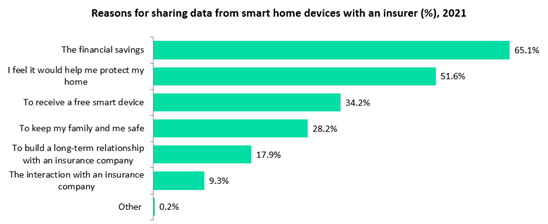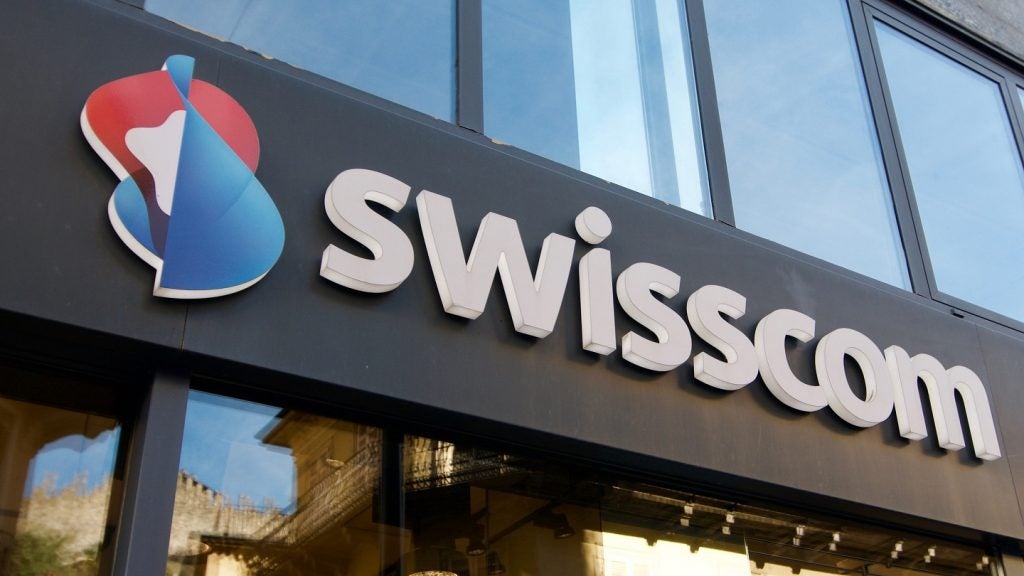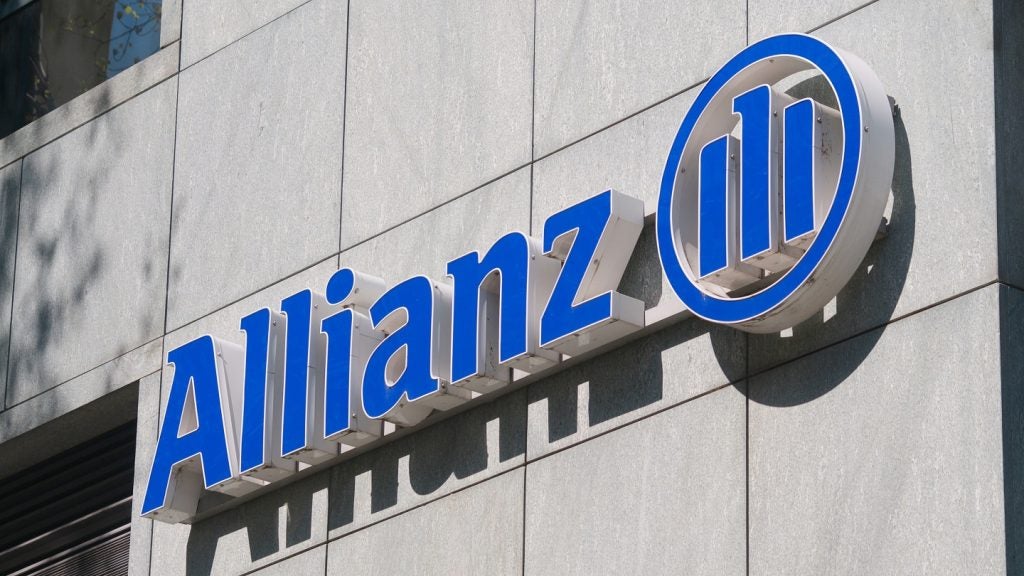Incorporating smart home devices into home insurance policies could reduce the number and severity of claims, yet only a handful of insurers offer such policies, and our data shows there is significant demand from consumers. Meanwhile, a substantial proportion of UK policyholders would be willing to share data from smart home devices in exchange for lower premiums or other financial rewards.
According to GlobalData’s 2021 UK Insurance Consumer Survey, 39.7% of home insurance policyholders with smart home devices would be either quite likely or very likely to share the data with an insurer in return for financial rewards. This is comparatively higher than the proportion of customers (24.8%) who would not be willing to share data from smart home devices.

The main reason given to consider sharing smart home data with insurers was in exchange of financial rewards, with 65.1% of consumers citing this. However, over half the respondents stated their motivation was to protect their home. At the other end of the spectrum, the least popular reasons were to establish a long-term relationship with an insurer and the possibility to interact with them, signalling that insurers have some way to go before creating an emotional connection with customers.

Source: GlobalData’s 2021 UK Insurance Consumer Survey
Besides weather events, the main claims areas in the UK’s home insurance market are escape of water, fire, and theft. As such, insurers developing smart home policies should focus their efforts on incorporating devices that prevent claims against these perils. Further data from our survey highlights that smart smoke and carbon monoxide detectors (36.0%) were the most commonly held devices, while only a small proportion of customers held water leak detection devices (6.7%).
Despite the considerable benefits of incorporating smart devices in home insurance, the number of players doing so remains limited. Hiscox and Direct Line offer home insurance policies incorporating a smart leak detector, but these are targeted at the high-net-worth market. Aviva, which targeted the mass market, has left this space after selling its share in smart home tech provider Neos in July 2021.
This signals that the industry is still facing difficulties to effectively leverage smart home technology into insurance policies. There are certainly benefits of incorporating such devices into policies not just in terms of reducing the severity of claims, but also being able to offer tailor-made policies to customers with financial savings. In addition, consumers are quite willing to share data with providers, reducing one other potential barrier to entry.
How well do you really know your competitors?
Access the most comprehensive Company Profiles on the market, powered by GlobalData. Save hours of research. Gain competitive edge.

Thank you!
Your download email will arrive shortly
Not ready to buy yet? Download a free sample
We are confident about the unique quality of our Company Profiles. However, we want you to make the most beneficial decision for your business, so we offer a free sample that you can download by submitting the below form
By GlobalData







Related Company Profiles
Hiscox Ltd